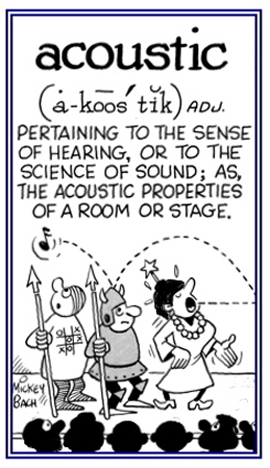-ic
(Greek: a suffix; pertaining to; of the nature of, like; in chemistry, it denotes a higher valence of the element than is expressed by -ous)
acidotic (adjective), more acidotic, most acidotic
A reference to or characterized by a high concentration of hydrogen-ions in a person's blood: When Jane went to her doctor for a blood test, he told her that her blood became acidotic caused by an imbalance of electrolytes and could result in her body developing an excess of fluid, elevated blood pressure, and weak bones, among other ailments, if not treated immediately.
aciduric (adjective), more aciduric, most aciduric
Pertaining to the growth of an organism in an acidic medium: Aciduric plants are acid-loving and thrive best in soil requiring a pH well below 7.
acinic (adjective) (not comparable)
Referring to one of the small saclike parts of a compound gland: Less than 1% of malignancies originating in the lower respiratory tract are acinic cell carcinomas.
aclastic (adjective)
1. Relating to or exhibiting aclasis.
2. Not refracting light rays; non-refractive.
2. Not refracting light rays; non-refractive.
aclinic
acmatic (adjective), more acmatic, most acmatic
Referring to the highest point or peak of something; the highest level of attainment: It was during her acmatic phases of performing on stage that Marilyn reached the ultimate level of success as an actress.
acmesthetic (adjective), more acmesthetic, most acmesthetic
Relating to a sensation of sharp points touching the skin but lacking the perception of pain usually associated with such stimulation: Glenda had an acmesthetic feeling when the point of the needle was put into her arm, so she didn't feel any pain.
Man is an intelligence in servitude to his organs.
acmic (adjective) (not comparable)
1. Referring to an acme, particularly to the peak of a genetic series of organisms: Martin learned all about the acmic or higheest point of the genetical development of cats.
2. Concerning a period where an aquatic group goes through seasonal changes: In her ecology class, Ivy learned about how marine organisms undergo the acmic time of transitional changes of the seasons.
2. Concerning a period where an aquatic group goes through seasonal changes: In her ecology class, Ivy learned about how marine organisms undergo the acmic time of transitional changes of the seasons.
acosmic (adjective), more acosmic, most acosmic
Conveying a denial of the existence of the universe as distinct from God: According to this viewpoint, the phenomenal dualistic acosmic world is ultimately an illusion, regardless of the apparent reality it possesses at the mundane or empirical level.
acousmatic (adjective), more acousmatic, most acousmatic
1. Relating to a class of scholars under Pythagoras who listened to his teachings without inquiring into their inner truths: The acousmatic pupils of the philosopher Pythagoras were required to sit in total silence while they listened to him deliver his lecture from behind a veil or screen so they might be able to concentrate better on what he was teaching them.
2. A reference to a sound, whether natural or produced, when the source of the sound is unseen or has no visually recognizable cause: In a mystery film, the prisoner could hear the acousmatic ringing of a bell from a source far above him.
2. A reference to a sound, whether natural or produced, when the source of the sound is unseen or has no visually recognizable cause: In a mystery film, the prisoner could hear the acousmatic ringing of a bell from a source far above him.
acoustic (adjective) (not comparable)
1. Pertaining to the sense of hearing: Dogs are known to have a much greater acoustic range for hearing than humans.
2. A reference to something that can be used to aid a person's hearing: The doctor prescribed an acoustic hearing aid for Mark so he could listen to others better.

© ALL rights are reserved.
Go to this Word A Day Revisited Index
2. A reference to something that can be used to aid a person's hearing: The doctor prescribed an acoustic hearing aid for Mark so he could listen to others better.

Go to this Word A Day Revisited Index
for a list of additional Mickey Bach illustrations.
The inability to write from dictation or from what is heard: Dr. Davis is a specialist in treating acoustic agraphias with which several of his patients are afflicted.
Impairment in the understanding of auditory language and communication, including the inability to write from dictation in the presence of normal hearing: Acoustic aphasia consists of sounds that are heard but which convey no meaning, however spontaneous speech, reading, and writing are supposedly not affected.
The numerous body organs and structures consisting of hearing, especially the various parts of the ear: As future ear, eye, nose and throat specialists, some of the medical students found the acoustic apparatus to be the most difficult to master.
A partial loss of hearing or a reduced sensitivity to sounds: Mr. Smith, the lawyer, found that the acoustic hypoesthesia which Shirley experienced created difficulty in the courtroom when she needed to hear everything that was said.


